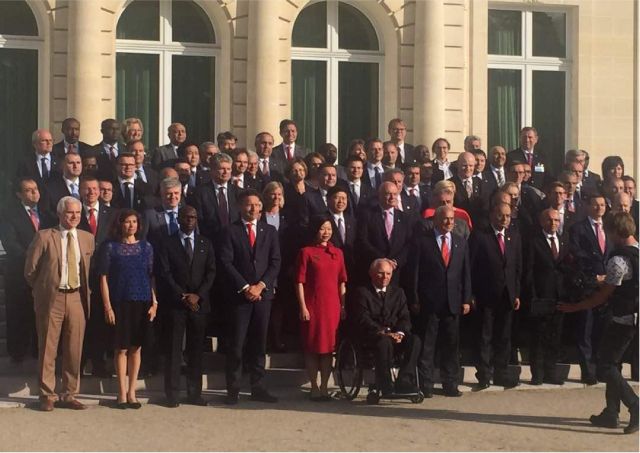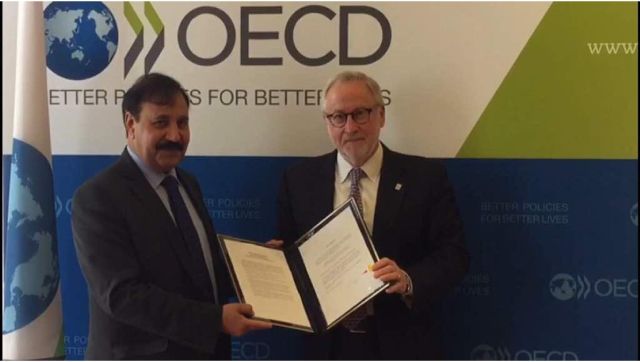Pakistan Signs Multilevel Convention on Base Erosion and Profit Shifting (BEPS) and the Multilateral Competent Authority Agreement for Automatic Exchange of Financial Accounts Information.
Pakistan Signs Multilevel Convention on Base Erosion and Profit Shifting (BEPS) and the Multilateral Competent Authority Agreement for Automatic Exchange of Financial Accounts Information
Pakistan signed on 7th June, 2017 the Multilateral Convention to Implement Tax Treaty Related Measures to Prevent Base Erosion and Profit (BEPS) in the Organization for Economic Co-operation and Development (OECD) Secretariat at Paris to demonstrate its commitment to counter cross- border tax avoidance and evasion strategies. The Multilateral Convention offers concrete solutions for governments to close the gaps in the existing international rules which allow corporate profits to disappear or shifted to low or no tax environments. The Convention was signed simultaneously by 67 jurisdictions in the presence of Secretary General, OECD. Mr. Moin ul Haque, Ambassador of Pakistan to France, signed the Convention for Pakistan.
The Multilateral Convention is the outcome of BEPS Action Plan, developed by OECD and endorsed by G20 Leaders. Base Erosion and Profit Shifting (BEPS) refers to tax avoidance strategies to exploit gaps and mismatches in tax rules to artificially shift profits to low or no-tax locations where there is little or no economic activity, resulting in the payment of little or no overall corporate tax. The estimated loss to the world tax revenues as a consequence of BEPS ranges from 100 to 240 US Dollars, or 4-10% of global corporate income tax. This Multilateral Convention will swiftly implement a series of tax treaty measures to update the existing bilateral tax treaties on matters related to BEPS and reduce opportunities for tax avoidance by multinational enterprises. Pakistan is a member of Ad hoc Group which has developed this Convention over a period of three years.
Earlier, Pakistan also signed the Multilateral Competent Authority Agreement on Automatic Exchange of Financial Accounts Information (MCAA). The MCAA was signed by Mr. Mohammad Iqbal, Chief (International Taxes) as a representative of Chairman, FBR. The signing was witnessed byMr. Douglas Frantz, Deputy Secretary General, OECD. The Ambassador of Pakistan to France and Head of Secretariat of the OECD’s Global Forum on Transparency and Exchange of Information for Tax Purpose were also present at the occasion.
The MCAA is the framework agreement in pursuance of Article 6 of the Multilateral Convention on Mutual Administrative Assistance in Tax Matters, signed by the Finance Minister in September, 2016. The MCAA provides details of what information has to be exchanged, when and how? With the signing of MCAA, Pakistan completes all the legal requirements for automatic exchange of financial account information and commits itself to the exchanges from 2018 onwards. During the signing ceremony, Pakistan progress on putting in place the required legal arrangements and administrative infrastructure was highly appreciated by the OECD officials.
Both the above agreements are the outcome of recent initiatives of FBR to access the international frameworks required in order to combat offshore tax evasion and avoidance. Earlier, Pakistan has also signed and ratified the Multilateral Convention on Mutual Administrative Assistance in Tax Matters.



